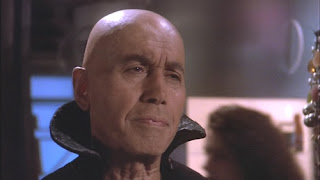I have been posting to this blog at least once a week for fourteen years. When I started in 2009, my youngest was only seven years old. Today she went through her first breakup.
If you look between all the nerdiness and pop culture and rants from those early years, and sift through the more personal entries, you are likely to find the apprehensive scrivenings of a man terrified at the thought of raising two young daughters destined to eventually, inevitably, become teenage girls.
At the time I was sincerely convinced that I would enter into a period of near-total irrelevance, if not actual derision, during the girls' adolescence. How could I maintain my position as a pater familias once they discovered how many other dads were so much better at it than I was? How would they react once they learned the stuff I thought of as cool was often disregarded or even mocked by the majority of the adult community?
It seems funny in retrospect, as both my daughters have turned out to be outstanding young women with good heads on their shoulders, and they still try to make time to get together to play Dungeons & Dragons with us. But the truth of the matter was that I grew up wary of teenage girls, even when I was fascinated by them as a teenage boy, and really never got over it. Adolescent females were just something I had no experience with.
Likewise breaking up - I married my first girlfriend three decades back and have never broken up with anyone, and if I die never having done so, I intend to chalk that up as a win. But it left me short in terms of providing any real insight or advice as to how to proceed once she decided that action needed to be taken.
We still talked about it, the whole family, last night, and reassured her that her perceptions and feelings were valid and that she was making the decision, even if doing so felt difficult.
And when she returned home this afternoon, having delivered the news that she and her beau would not be seeing each other again, her face streaked with tears, all she said was, "It doesn't feel good to hurt another person."
My eyes leaked and I agreed, but I was so proud.
It made me think, of all things, of a scene in Babylon 5, an old sci-fi series that somehow managed to blend together Star Trek, Lord of the Rings, and Casablanca. In one episode, the commander of the titular space station encounters a "technomage" named Elric (portrayed by the brilliant Michael Ansara), someone who uses technology to create the appearance of magic:
Elric: We are dreamers, shapers, singers, and makers. We study the mysteries of laser and circuit, crystal and scanner, holographic demons and invocation of equations. These are the tools we employ, and we know many things.
John Sheridan: Such as?
Elric: The true secrets, the important things. Fourteen words to make someone fall in love with you forever. Seven words to make them go without pain. How to say good-bye to a friend who is dying. How to be poor. How to be rich. How to rediscover dreams when the world has stolen them. That is why we are going away—to preserve that knowledge.








